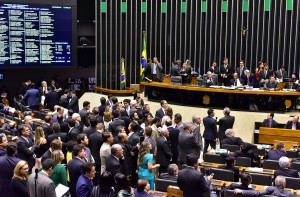Source: DCI (São Paulo - SP) - 21/05/2012
The City of São Paulo published a new regulation for the Tax on Services of Any Nature (ISS) in the municipality, revoking a decree in force since 2009. Among the various changes present, 173 articles of Decree no. 53.151, of May 17, 2012, the most controversial is the inclusion of the normative instruction that since the beginning of the year blocks the issuance of Electronic Services Invoice (NFS-e) of companies that are in default in relation to the ISS payment.
"This inclusion will give us something to talk about", says lawyer Fabiana Gragnani, from Siqueira Castro Advogados. Some companies have already succeeded in court injunction to overturn the suspension and continue issuing the electronic note. The accepted argument is that the rule violates business freedom and constitutes coercion for the payment of tax debts.
The decree of the city hall brings the novelty in its article 81, paragraph 3, and stipulates the same form, term and conditions established by the Municipal Finance Secretariat. Thus, a person who fails to pay the ISS due for four consecutive months of incidence or six alternating months in a year is in default.
Some changes brought by the city hall, according to the lawyer, were already expected, such as the inclusion of rules on the Paulistana Invoice, provided for in ordinances.
The changes to some rates are also present in the regulation. Now they vary between 2%, 3% or 5% - that of 2,5% has been excluded. The 5% rate applies to the vast majority of services. Some activities went from 5% to 2%, such as financial institution services and public records.
The ISS is paid differently by independent professionals and uniprofessional societies (such as lawyers, doctors and dentists): it does not affect monthly billing, it varies according to the number of qualified professionals. “With the previous rule, some situations were excluded from this payment, such as companies whose partner is another legal entity or other companies. The new decree extended these exceptions ”, says Fabiana.
New exclusions from differentiated payment are companies that outsource activities or pass them on to third parties and those that have branches, branches, agencies or representative offices.
Another change concerns the extension of the ISS retention list by the service borrower: now sectors such as IT, advisory or consultancy of any kind, advertising and publicity, auditing, consultancy and economic or financial advisory and hotels and motels when taking or intermediating services of dyeing and laundry, they must also withhold tax at source.
The 2009 regulation (Decree No. 50.896) prevented uniprofessional companies from issuing electronic invoices. Now, they are required to issue the document. "This brings a new obligation, which can lead to complications", says the lawyer.
She highlights the special payment regime for health plans as an important change. "The plans may deduct payments made to third parties, as is already the case, for example, with advertising agencies or that perform intermediation and transfer services to third parties", says Fabiana. "What the plans pay taxes on services passed on to hospitals and laboratories can be deducted", he adds. The specific rules and deadlines are yet to be published by the municipality's Finance Secretariat.
Some fines were also updated: those from R $ 400 went to R $ 530, and those from R $ 1.100, to R $ 1.300, for example. The São Paulo invoice program should also be expanded, becoming similar to that of the state.
For the lawyer, the changes bring positive and negative things. “There are interesting situations, such as health plans and the reduction of rates. But there are controversial issues, such as that of defaulters, ”he says.




